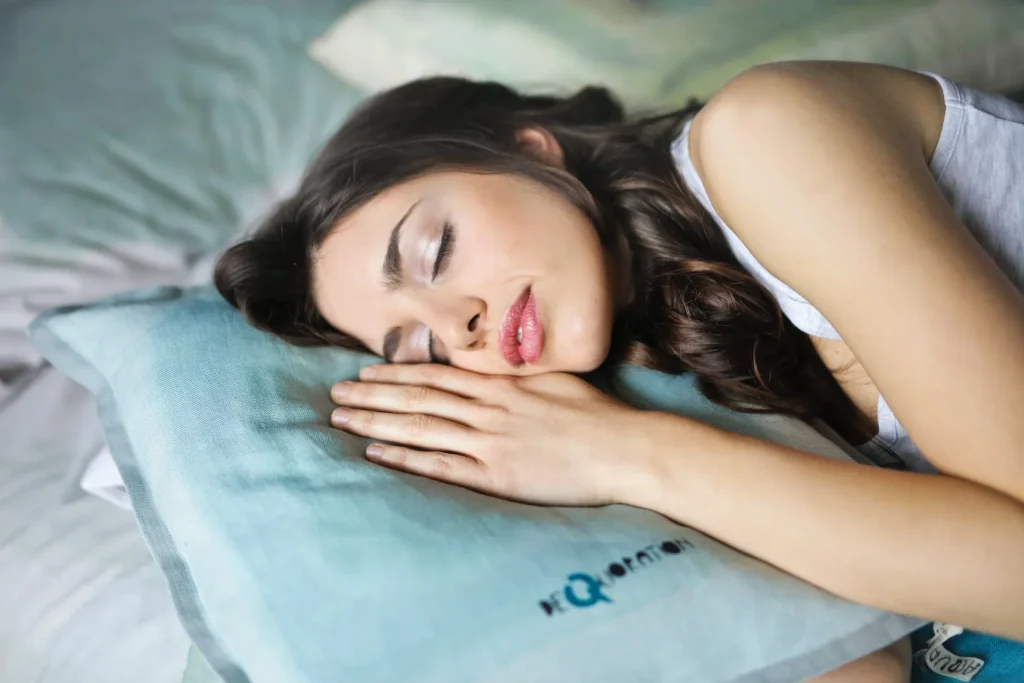Sleeping and waking on time are important for your well-being. You cannot function properly without getting those hours in because sleep is crucial in everything from mood and memory to physical performance and immune function. However, many people struggle with falling and staying asleep, often due to poor sleep hygiene. If you’re not aware, sleep hygiene is the habit that affects the quality of your sleep. When you follow a sleep hygiene checklist, you can improve your sleep quality and wake up feeling refreshed and energized.
Here is a sleep hygiene checklist for you
When you have a checklist for things, it’s easier to build a proper routine. Here is a rough sketch for you.
Have a Consistent Sleep Schedule
The easiest way to ensure good sleep hygiene is to create a sleep schedule and stick to it. To establish a consistent sleep schedule, start by setting a bedtime that allows for at least 7-8 hours of sleep each night. Then, gradually adjust your sleep and wake times until you consistently hit this target. It may take time to get used to a new sleep schedule, so be patient and stick with it.
And once you form the habit, you will start feeling sleepy as soon as the clock strikes 10 (or whatever time you set it to).
Have a Relaxing Bedtime Routine
Moving on, the things you do right before going to bed are also crucial to the quality of sleep you get. For example, right before falling asleep – avoid activities that will disturb your sleep pattern such as watching TV or using electronic devices that emit blue light. Blue light can disrupt your body’s natural production of melatonin, which helps regulate sleep. If you must use electronic devices before bed, consider using blue light-blocking glasses or turning on a “night shift” mode to reduce the amount of blue light emitted.
Moreover, you can replace your phone with a book at night. It’ll definitely make you fall asleep easily.
Create a soothing environment
Your sleep environment can significantly impact your ability to fall and stay asleep. To create such an environment, start by ensuring that your bedroom is quiet, warm, and dark. A snug eye mask helps block out light, or if you can afford them, blackout shades/curtains. Also, consider using earplugs or a white noise machine to block out any unwanted noise.
Invest in a comfortable mattress and pillows that support your preferred sleep position. If you have allergies or respiratory issues, consider using a HEPA filter to remove allergens and pollutants from the air.
On top of this, make sure you make your bed before going to sleep. It will make you feel much calmer.
Limit the intake of caffeine
We all love coffee. But Caffeine, alcohol, and nicotine are all substances that can interfere with your ability to fall and stay asleep. Caffeine, found in coffee, tea, and chocolate, can stimulate the nervous system and disrupt sleep. Nicotine, found in cigarettes and other tobacco products, is a stimulant that can interfere with sleep.
To improve your sleep hygiene, limit your intake of caffeine, alcohol, and nicotine, particularly in the hours leading up to bedtime. For caffeine, consider switching to decaf or herbal tea, or limit your consumption to earlier in the day. For alcohol, limit your intake and avoid drinking in the hours leading up to bedtime. If you smoke, consider quitting or limiting your nicotine intake before bedtime.
For example, don’t smoke a cigarette after 6 pm and limit your coffee intake after 3 pm. You will experience a massive change in your sleeping habits.
It’s very tempting to make yourself a cup of coffee at night but it will leave you turning and tossing in bed. So, you have to make a choice here.
Exercise daily
Being lazy around the house is the best thing ever. But it can impact your sleep hygiene. On the other hand, regular exercise can positively impact sleep quality, as it will make you feel tired and you will fall asleep as soon as you hit the sack.
On top of this, exercise can also reduce stress and anxiety, which can interfere with sleep. However, it’s important to note that exercising too close to bedtime can have the opposite effect and make it harder to fall.
Takeaway
It’s becoming harder to fall asleep at night for many people. Most of it has to do with our poor sleep hygiene. However, it’s very easy to get back on track. For starters, you can begin by creating a sleep hygiene checklist. This habit will set your body clock. Moreover, start to invest in gadgets that can help you track your sleep, etc. These will help you understand your sleep pattern so you can make changes accordingly.













